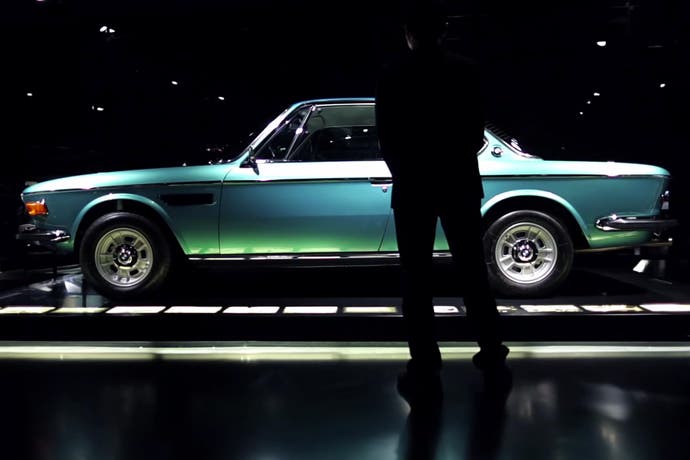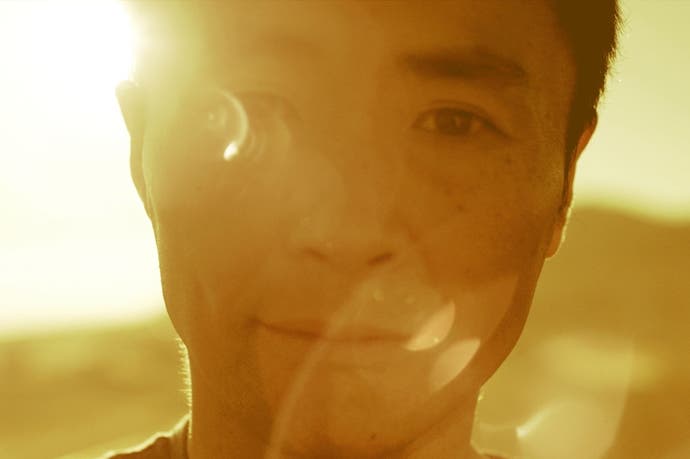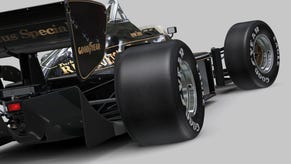Kaz: Pushing the Virtual Divide review
This Sony-funded vanity doc about Mr Gran Turismo is more than a puff piece - but only just.
At first glance, you'd think this documentary film about Polyphony Digital founder Kazunori Yamauchi is just artfully disguised marketing for Gran Turismo. That's because your first glance is of the words "Sony Computer Entertainment presents"; it is just disguised marketing, part of Sony's promo blowout celebrating the series' 15th anniversary and the release of GT6. But that doesn't mean the film doesn't have an interesting subject and a few things to say, although it has some trouble articulating them.
Yamauchi is one of the oddest figures in gaming. He's unquestionably an auteur, one of a generation of Japanese game designers - alongside the likes of Shinji Mikami and Hideo Kojima - who have enjoyed unparalleled creative control over huge commercial projects, have been as personally identified with them as a movie director or a rock star would be, and have always pursued a personal vision in their work - sometimes past the point of sense. And yet he works not in cinematic action gaming but simulation; his art is not expressed with flamboyant style, but subsumed in the painstaking work of recreation - of cars, of race tracks, of the physical properties of tyres and suspension rods. He's not interested in creating his own worlds within video games, but in erasing the boundary between games and the real world.
Gran Turismo games overflow with passion for cars and motorsport, but they're also pretty dry experiences, so it's surprising to discover that Yamauchi is not a cerebral technocrat but a sentimental free spirit with a philosophical streak. The most revealing sections of the film show him walking in the woods, reminiscing about collecting bugs with his nature-loving father. He muses that bug collection, driving cars and capturing data are "all connected to the male hunting instinct". He lived free: as a child, he would draw obsessively on the walls of the family home, which his parents covered and recovered with paper for him. As a young man - as our own Martin Robinson discovered in interview with him last year - he was a reckless boy racer.
After playing around with film-making as a student, Yamauchi joined Sony's gaming programme in its earliest days, when it was still part of the corporation's music division. Gran Turismo already existed in his head, and he formed a band of gifted programmers around him to make it real. It wasn't long before Sony acknowledged his wilfulness and allowed him to form his own studio as a wholly-owned subsidiary, rather than try to control him. It was a huge relief, he remembers: "I didn't have to fight the system any more."
It was also a wise decision - the GT series has gone on to sell upwards of 70 million copies, and has been crucial to PlayStation's success, especially in Europe. All the same, there must have been (and still be) times when Sony regretted giving him so much free rein, as games have been delayed and crucial features neglected while Polyphony pursued Yamauchi's quixotic agenda. That agenda encompasses over 1000 cars, a motorsport training programme and an astonishingly fully-featured photography mode, but barely gives such vital components of modern video game engineering as networking or artificial intelligence the time of day.
This subject is left completely unexplored by this Sony-funded film, which is only interested in portraying Yamauchi as a visionary existing in total harmony with his corporate masters. We know that can't be the whole story, but the film is either uninterested in telling it or unable to, so it ends up an incomplete portrait of Yamauchi as an artist. Instead, director Tamir Moscovici, who made the glossy car-culture doc Urban Outlaw, spirals outwards from his subject in unpredictable directions, some of them only connected to GT and Yamauchi by the loosest of threads.
He interviews a sports psychologist, who discusses the "flow state" that gifted sportsmen experience; a master of modern origami, who talks about capturing the spirit of a subject in a series of folds, like the polygons of a computer graphics model; a surfboard shaper, who explores the contradiction of using computers to replicate something hand-crafted; a mother and father putting their kid through ruinously expensive go-karting; a champion drift racer who dreams of getting his own car in Gran Turismo.
The relevance of these vignettes varies, but the vague theme of the pursuit of perfection is at least appropriate to Yamauchi's own quest, and some of them do briefly illuminate the Gran Turismo project from interesting and unusual angles. The thought that you can't capture the spirit of something through replication alone is expressed more than once, although Yamauchi himself retreats from this idea, and is too in thrall to the technological wonders of the modern car industry to agree that it's losing some of its sense of craftsmanship.

There's no arguing with the change being effected by the Nissan-sponsored GT Academy racing driver training programme, though. Taking GT-playing kids with no real motorsports experience and turning them into successful racing drivers, this project has the potential to use video games to revolutionise grassroots motorsport - an unprecedented incursion of games into the real world they simulate. Yamauchi, who has also been turned into a real racing driver by his game, is transparently emotional about GT Academy, and the contrast between it and the expensive travails of the karting family is clear.
Rarely is Kaz: Pushing the Virtual Divide this eloquent, though. With no narration and little structure, it doesn't have the coherence to make its better ideas stick. The rest is just conventional hagiography. Sony's Shuhei Yoshida and GTplanet.com's Jordan Greer pay tribute, motor industry executives congratulate themselves on their marketing tie-ins, and there are reams of empty, glossy shots of Yamauchi: Kaz sitting in a shiny boardroom with Toyota brass, Kaz taking photos with an expensive-looking Sony camera, Kaz cruising the streets of LA and Tokyo by night in sleek sportscars. It's evident from his interviews that he's a romantic man, but romanticising him in this way feels cheap and a bit gauche.
Polished-looking and dreamily celebratory in the currently fashionable style, Kaz: Pushing the Virtual Divide is ultimately a vanity doc. It's saved by Yamauchi's personal charm - he's one of few dreamers left at his level in the games industry - and by some novel, inclusive approaches to its subject, even if they're only half-expressed. But it's a purely commercial thing, a marketing tool that is only art by accident. With Gran Turismo itself, it's no accident.
Kaz: Pushing the Virutal Divide is free to stream on Hulu.com. You need a US internet address to view it. A wider release is planned, but no European release has been announced.


















